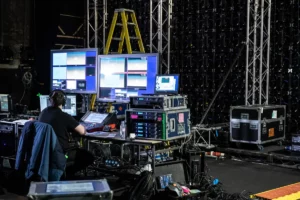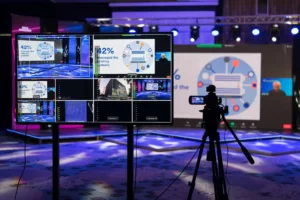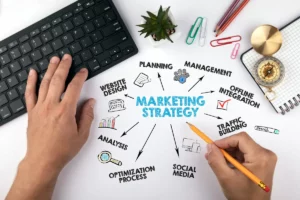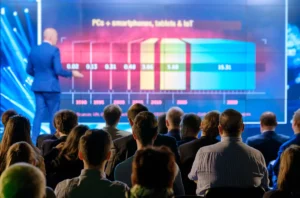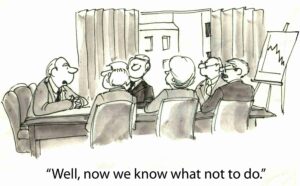In today’s digital age, virtual event success have become indispensable for organizations aiming to connect with global audiences, deliver impactful content, and foster meaningful engagements.
The success of virtual events hinges not only on content and engagement strategies but also on the effective use of specialized tools and technologies.
At Honest AV, we specialize in enhancing virtual event experiences through a comprehensive toolkit of essential tools.
This guide explores key tools that organizations can leverage to ensure seamless planning, execution, and virtual event success, focusing on practical insights and expert advice.
Platforms for Virtual Event Success
Choosing the right virtual event platform is fundamental to delivering a seamless and engaging experience: Virtual event platforms such as Zoom, Webex, and Hopin offer a range of features including live streaming, breakout rooms, and attendee engagement tools.
Criteria for platform selection should include scalability to accommodate varying audience sizes, security features to protect attendee data, and integration capabilities with CRM systems and marketing tools.
Case studies from successful virtual events can provide insights into how different platforms can be utilized effectively to maximize attendee engagement and satisfaction.
Audio-Visual Equipment and Setup
High-quality audio and video are crucial for delivering an immersive virtual event experience: Investing in professional-grade audio equipment such as microphones and speakers ensures clear and crisp sound quality, reducing background noise and enhancing speaker clarity.
Using high-definition cameras and proper lighting setups improves video quality, making presentations and interactions more engaging and visually appealing.
Technical rehearsals before the event help identify and resolve potential audio-visual issues, ensuring a seamless experience for attendees and presenters alike.
Interactive Engagement Tools
Interactive features play a pivotal role in keeping attendees engaged and actively participating: Live polling and Q&A sessions allow speakers to interact with the audience in real-time, gather feedback, and address questions, fostering a dynamic and collaborative atmosphere.
Chat functionalities enable attendees to network, share insights, and discuss topics of interest, enhancing community building and attendee satisfaction.
Integrating these tools seamlessly into the virtual event platform encourages attendee participation and contributes to a more interactive and enriching experience.
Registration and Ticketing Platforms
Efficient registration and ticketing platforms streamline the attendee registration process and enhance event management capabilities: Features such as customizable registration forms, automated confirmation emails, and integrated payment gateways simplify attendee registration and payment processing.
Integration with CRM systems enables organizers to manage attendee data effectively, track registrations, and personalize communications leading up to the event.
Case studies illustrating successful implementation of registration and ticketing platforms showcase how these tools can optimize attendee management and improve overall event organization and efficiency.
Virtual Networking and Collaboration Tools
Facilitating virtual networking opportunities is essential for fostering connections and enhancing participant engagement: Breakout rooms and networking lounges allow attendees to connect with peers, sponsors, and speakers in smaller groups, facilitating meaningful interactions and knowledge exchange.
Collaboration tools such as virtual whiteboards and document sharing platforms enable real-time collaboration on projects and presentations, enhancing productivity and teamwork among participants.
Implementing these tools effectively encourages networking, collaboration, and relationship building among attendees, contributing to a more interactive and impactful virtual event experience.
Content Creation and Management Tools
Tools for creating, managing, and delivering content play a critical role in ensuring the quality and relevance of virtual event presentations: Slide deck creation software offers templates, multimedia integration capabilities, and real-time editing features, allowing presenters to create visually engaging and informative presentations.
Live streaming platforms enable seamless broadcasting of sessions and keynote speeches to remote audiences, ensuring that content reaches attendees in real-time, regardless of their location.
Content management systems facilitate the organization, storage, and distribution of event materials, ensuring that attendees have access to relevant resources before, during, and after the event.
Analytics and Reporting Tools
Analyzing attendee behavior and event performance provides valuable insights for optimizing future virtual events and demonstrating ROI: Analytics tools track key metrics such as attendance rates, session popularity, engagement levels, and attendee satisfaction scores, offering organizers actionable data to assess event effectiveness.
Survey and feedback tools gather attendee feedback and sentiment, enabling organizers to identify strengths, areas for improvement, and audience preferences for future event planning.
Using data-driven insights allows organizers to make informed decisions, refine event strategies, and tailor content and engagement tactics to meet attendee expectations and organizational goals.
Security and Privacy Tools
Ensuring data security and attendee privacy is paramount in virtual event environments: Security tools such as encryption protocols, secure login procedures, and access controls protect sensitive attendee information and prevent unauthorized access to event sessions and data.
Compliance with data protection regulations such as GDPR (General Data Protection Regulation) ensures that attendee data is handled responsibly, building trust and confidence among participants.
Transparent communication about security measures reassures attendees and stakeholders of the event’s commitment to protecting their privacy and maintaining data integrity throughout the virtual event experience.
Technical Support and Troubleshooting Tools
Providing reliable technical support is essential for addressing attendee concerns and ensuring a smooth virtual event experience: Technical support resources such as help desks, troubleshooting guides, and FAQs (Frequently Asked Questions) equip attendees and organizers with the information and assistance needed to resolve technical issues promptly.
Pre-event technical rehearsals allow presenters and technical staff to test audio-visual equipment, connectivity, and platform functionalities, identifying and addressing potential issues before they impact the event.
Training speakers and moderators on using virtual event tools and handling technical challenges prepares them to deliver presentations confidently and effectively, minimizing disruptions and enhancing attendee satisfaction.
Case Studies and Success Stories
Real-world examples demonstrate how organizations have successfully leveraged essential tools for virtual event success: Case studies highlight innovative uses of virtual event platforms, audio-visual equipment, interactive engagement tools, and registration platforms to achieve engagement, satisfaction, and ROI goals.
Success stories from different industries showcase best practices, lessons learned, and strategies for overcoming challenges in virtual event planning and execution.
The success of virtual events hinges on the strategic use of essential tools and technologies that enhance attendee engagement, streamline event management, and deliver impactful content.
By leveraging virtual event platforms, audio-visual equipment, interactive engagement tools, and other essential resources, organizations can create immersive and memorable virtual event experiences that resonate with attendees and achieve organizational objectives.
Partner with Honest AV to navigate the complexities of virtual event planning and execution, ensuring seamless and successful outcomes for your next virtual event

